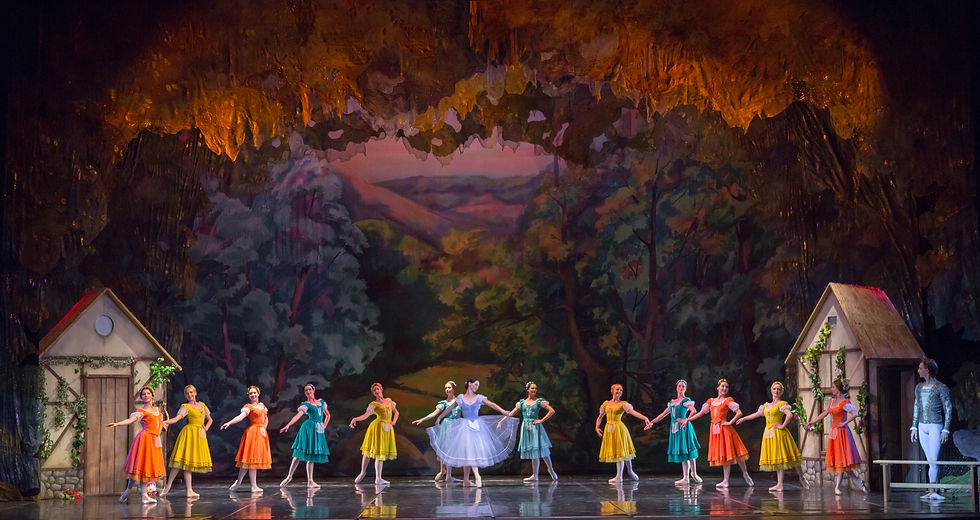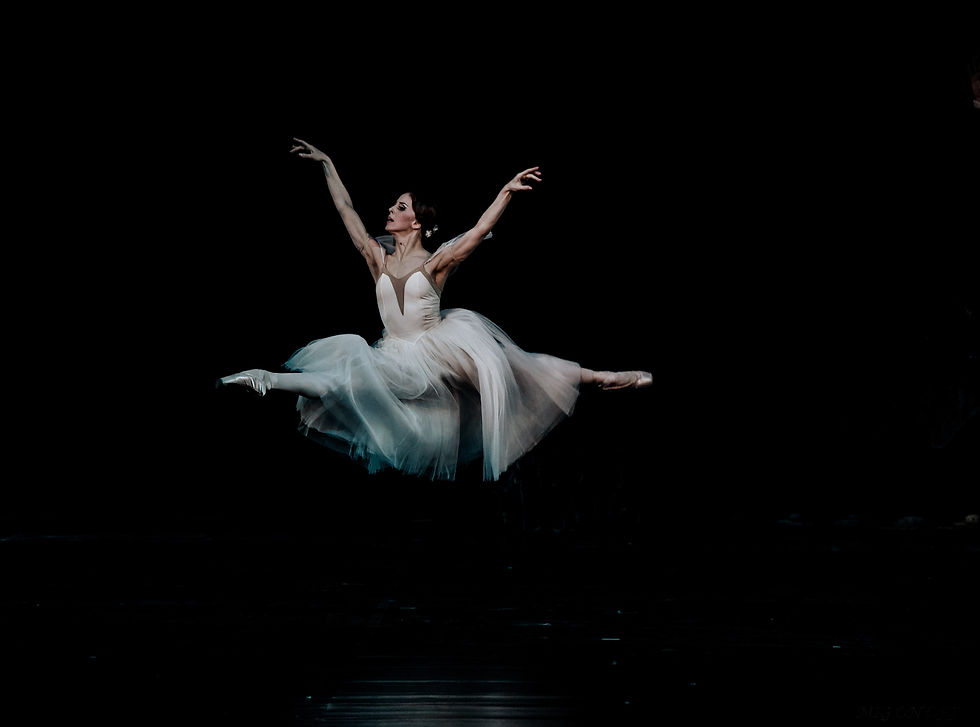

GISELLE
The basis of the work "Giselle" by Adolphe Adam is an ancient Slavic legend about the Wilis - young unmarried girls who died, betrayed by their lovers. From now on, they are forced to avenge themselves by killing young men at night, drawing them into their dances.
The scenario was created by the French poet Théophile Gautier (1811-1872) based on an old legend written down by Heinrich Heine about the Wilis, girls who died from unhappy love, who, having turned into magical creatures, dance to death the young men they meet at night, taking revenge on them for their ruined lives. In order to give the action an unspecific character, Gautier deliberately mixed up countries and titles: placing the action in Thuringia, he made Albert the Duke of Silesia (he is called a count in later versions of the libretto), and the bride's father the Prince (in later versions he is a duke) of Courland. The famous librettist and skilled author of many librettos, Jules Saint-Georges (1799-1875) and Jean Coralli (1779-1854), participated in the work on the scenario. Coralli (real name Peraccini) worked for many years at the La Scala theatre in Milan, and then at the theatres of Lisbon and Marseille. In 1825 he came to Paris and from 1831 became the ballet master of the Grand Opera, then called the Royal Academy of Music and Dance. Several of his ballets were performed there. Thirty-year-old Jules Joseph Perrot (1810-1892) also took an active part in the production of the ballet.
“Dressed in wedding dresses, crowned with flowers… the irresistibly beautiful Wilis dance in the moonlight, they dance the more passionately and quickly, the more they feel that the hour given to them for dancing is running out, and they must again descend into their icy graves…” (G. Heine).




Brief summary of the performance:
I Action
A small, quiet, sun-drenched village. Simple, straightforward people live here.
The young peasant girl Giselle enjoys the sun, the blue sky, the singing of birds and most of all the happiness of love, trusting and pure, which has illuminated her life. She loves and believes that she is loved. In vain the forester, who is in love with her, tries to convince Giselle that her chosen Albert is not a simple peasant, but a nobleman in disguise, and that he is deceiving her.
The forester sneaks into Albert's house, which he rents in the village, and finds a silver sword with a coat of arms there. Now he is finally convinced that Albert is hiding his noble origins. In the village, after hunting, noble gentlemen with a magnificent retinue stop to rest. The peasants greet the guests warmly and affably. Albert is embarrassed by the unexpected meeting with the newcomers. He tries to hide his acquaintance with them: after all, his fiancée Bathilde is among them. However, the forester shows everyone Albert's sword and tells about his deception. Giselle is shocked by her lover's treachery. The pure and clear world of her faith, hopes and dreams is destroyed. She goes mad and dies.
Act II
At night, among the graves of the village cemetery, ghostly Wilis appear in the moonlight - brides who died before their wedding. "Dressed in wedding dresses, crowned with flowers... irresistibly beautiful, the Wilis dance in the moonlight, dancing the more passionately and quickly, the more they feel that the hour given to them for dancing is running out, and they must again descend into their cold, ice-cold graves...".
The Wilis notice the forester. Tormented by remorse, he has come to Giselle's grave. At the command of their inexorable mistress Myrtha, the Wilis whirl him in a ghostly circle until he falls, lifeless, to the ground.
But Albert cannot forget the dead Giselle either. In the dead of night, he also comes to her grave. The Wilis immediately surround the young man. The terrible fate of the forester threatens Albert too. But the shadow of Giselle, who has preserved her selfless love, protects and saves Albert from the wrath of the Wilis.
With the first rays of the rising sun, the white ghosts of the Wilis disappear. The light shadow of Giselle also disappears, but she herself will always live in Albert's memory as an eternal regret for lost love - a love that is stronger than death.

